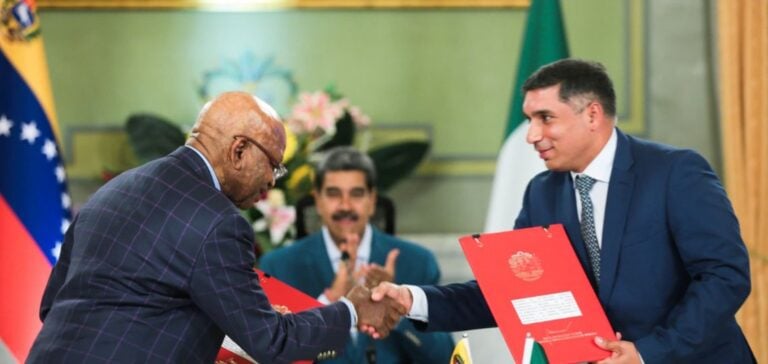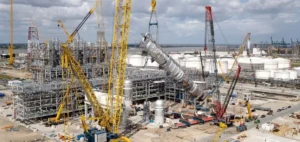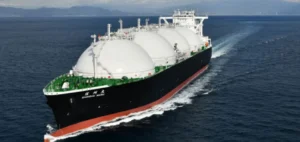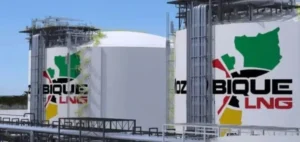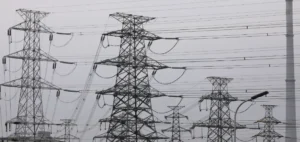Petróleos de Venezuela S.A. (PDVSA) and Veneoranto Petroleum Ltd, a subsidiary of Nigeria’s Atlas Oranto, have signed a key agreement for the development of two offshore gas fields located in strategic areas of Venezuela.
The Barracuda field, located in the Gulf of Venezuela close to the Colombian border, is estimated to hold 20 trillion cubic feet (Tcf) of natural gas and around 2 billion barrels of condensate.
The Boca de Serpiente field, located on the Plataforma Deltana near the border with Guyana, is also considered a key resource for the country’s energy future.
The collaboration with Veneoranto is part of PDVSA’s strategy to attract foreign investment against a backdrop of international sanctions and political pressure.
The aim is to boost Venezuela’s gas production while diversifying commercial partnerships.
President Nicolás Maduro underlined the importance of this agreement, which could enable Venezuela to export gas to Africa via channels established by its Nigerian partner.
Geopolitical and economic implications
The development of these gas fields is taking place against a complex geopolitical backdrop.
Venezuela, which already possesses substantial natural gas reserves, aims to strengthen its role on the world market, building on strategic partnerships such as the one with Veneoranto.
This agreement could also have implications for regional relations, notably with Trinidad and Tobago, with which Venezuela has recently signed several gas agreements.
The rapprochement with the BRICS countries, mentioned by Maduro, could also influence the distribution of energy resources worldwide.
While Venezuela is considering transferring development rights to these countries in response to Western sanctions, this type of partnership could alter economic and energy dynamics, particularly if countries like Saudi Arabia join the BRICS.
Venezuela’s gas reserves, combined with the existing infrastructure on the Paraguaná peninsula, offer significant potential for attracting foreign investors, despite the political and economic challenges.
The agreement with Veneoranto illustrates Venezuela’s ability to establish strategic partnerships to exploit its natural resources, while navigating a complex international environment.


